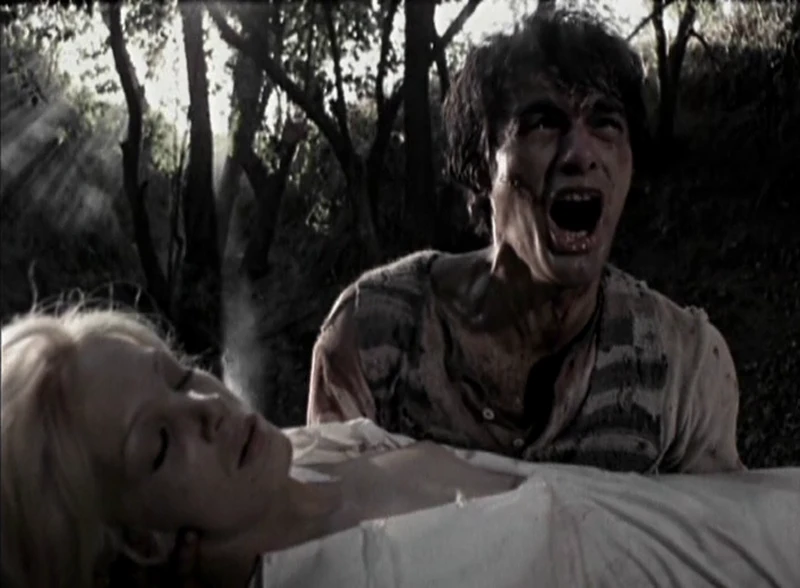Nazareno Cruz y el lobo, las palomas y los gritos AKA Nazareno Cruz and the Wolf (1975)
| director: | Leonardo Favio |
| release-year: | 1975 |
| genres: | horror, fantasy, werewolf, shocktober |
| countries: | Argentina |
| languages: | Spanish, Quechua |
| fests: | SHOCKtober 2024: WOLFtober |
Probably the first WOLFtober entry that was nominated for entry into the Academy Awards (it was declined), it is considered one of the best Argentine films ever made, and is one of the most known and most viewed. It's based on the Paraguayan legend of the /lobizón), that the seventh male child will turn into wolf-like beast when it reaches adolescence. The audio quality is truly horrible. The credits list "el lobo" as played by mononymed "ñaró", which I'm really hoping is a dog. There are also a bunch of people with the surname "Lobotrico", which seems fitting.
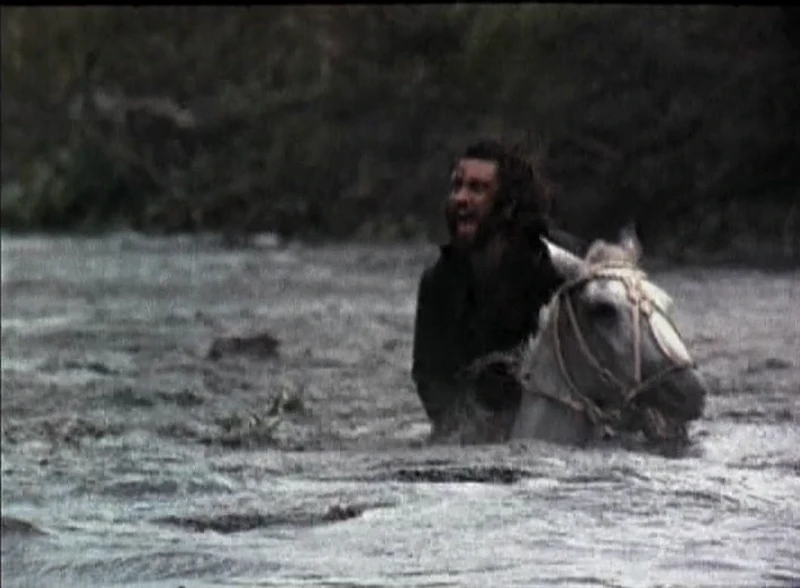
A raggedy old witch warns a farmer not to have another child, but he does anyway. His first six sons get killed in some crazy stock footage of horseback riders drowning in a river. The old ladies of the village gather around during the delivery to pray that she gives birth to a girl who is good at cooking and cleaning, but no such luck. They go tell the farmer, who seems to be on his death bed and surrounded by the single largest candles I've ever seen, that he has received a seventh son… a werewolf. "Nazareno y Cruz shall be his name," says one of the old ladies.
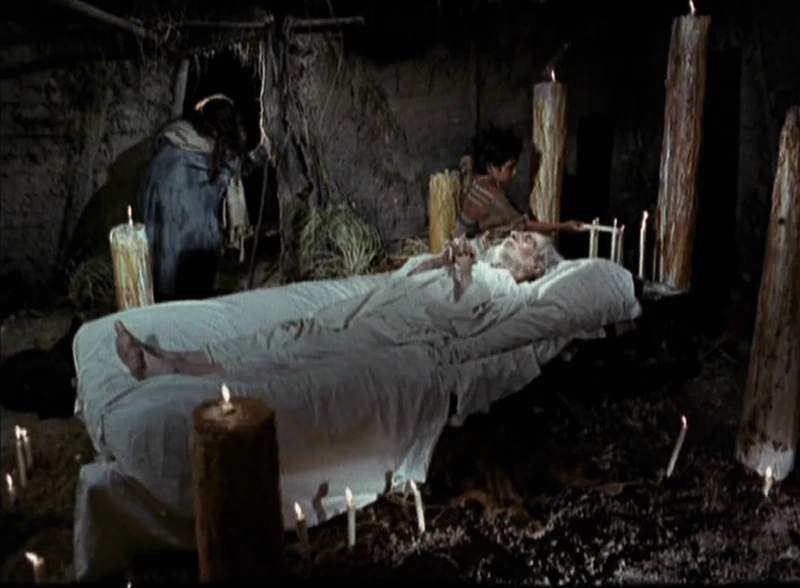
A narrator pops in every once in a while to tell us the legends, backstory, and inner thoughts. This probably wouldn't be necessary in a normal movie, but in this film people communicate primarily by yelling dramatic statements at the sky. The narrator tells us that everybody loves Nazareno as he grows into a young man, and then the camera pans around for ages and ages and ages across the pale-skinned blonde girl, Griselda, so we'll understand that Nazareno is interested in her. We get it after 1 second, but it goes on for some five minutes or so, while dramatic, romantic choir music intensifies. This scene alone is enough to make it unworthy of an Academy Award nomination.
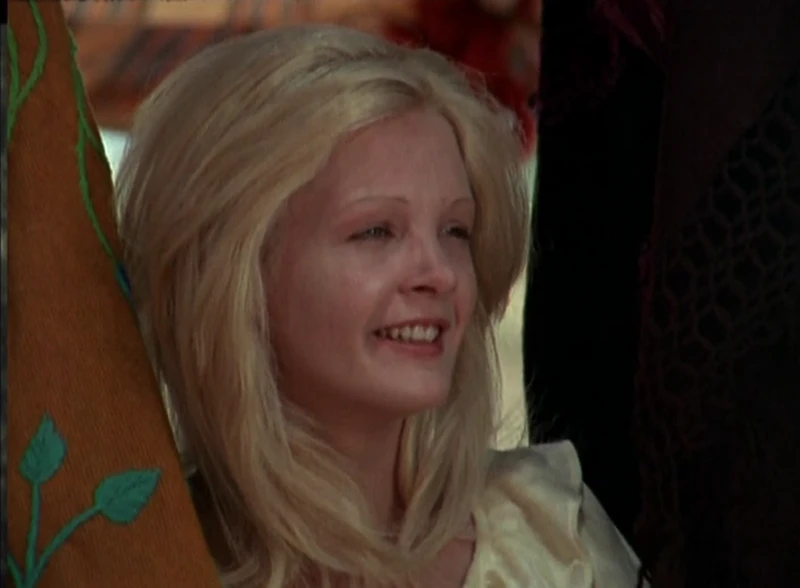
After a short break to listen to Griselda laughing unnaturally, the choir music kicks back in over a montage of them falling in love in Argentinian farmland. A pack of doves fly from behind a rock when they kiss. The kiss goes on for minutes. At 20 minutes into the film, about 15 minutes of it has been the Nazareno & Griselda making out montage. Those South Americans sure are passionate people.
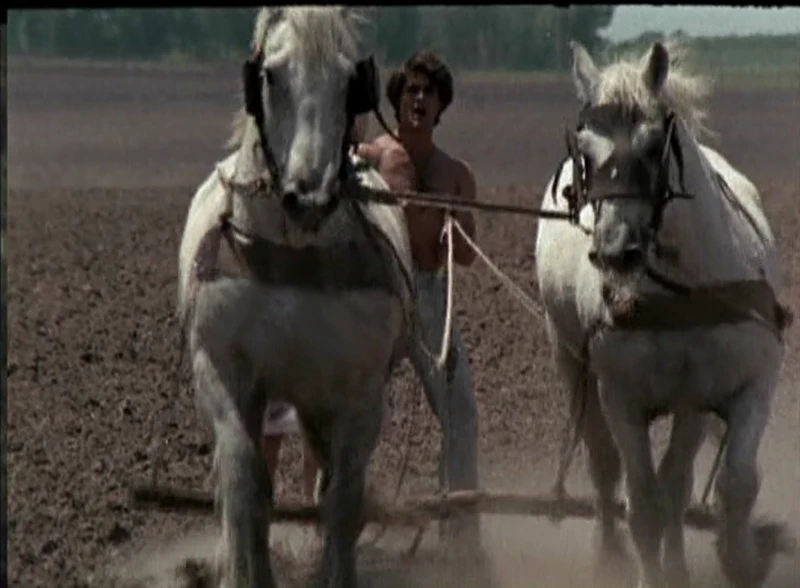
Nazareno meets an unidentified, mysterious cowboy in a fancy outfit. He stares extremely intensely into the camera, and dramatically tells Nazareno that tomorrow he shall roam the fields as a wolf. They both cackle both too hard and too long at this. Then they stare intensely at each other again, and the mysterious cowboy tells him that falling in love is the event that triggers the evil inside him to be released at the next full moon.
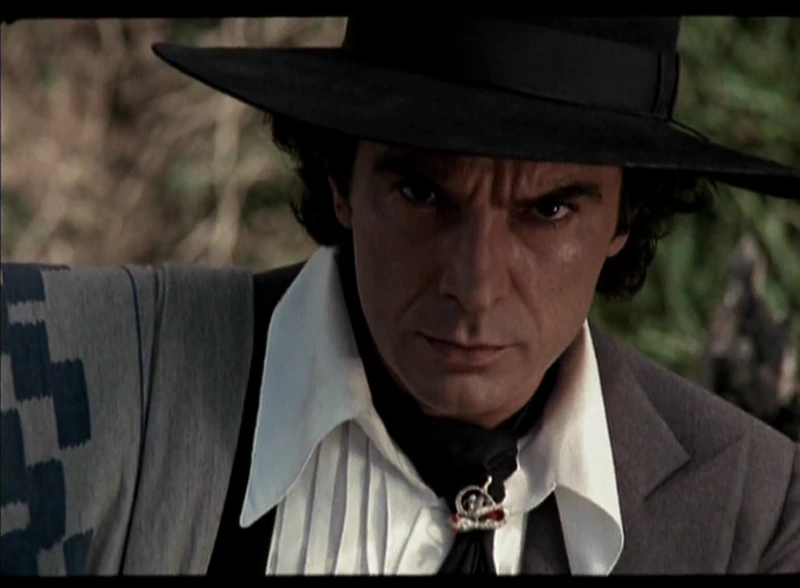
Suddenly the field fills with fancy horse carts full of gold. The man tells Nazareno that if he renounces love, he will receive seven carts of seven treasures every seven days and be seven times as powerful as the seven blah blah. Seven is the magic number. Nazareno and the cowboy both move very slowly, pacing around the magical field intently, while slow piano music plays. Nazareno breaks suddenly, screaming and running home to his crying mother, while the disembodied voice of the cowboy laughs. The slow-motion shot of him running is looped poorly.
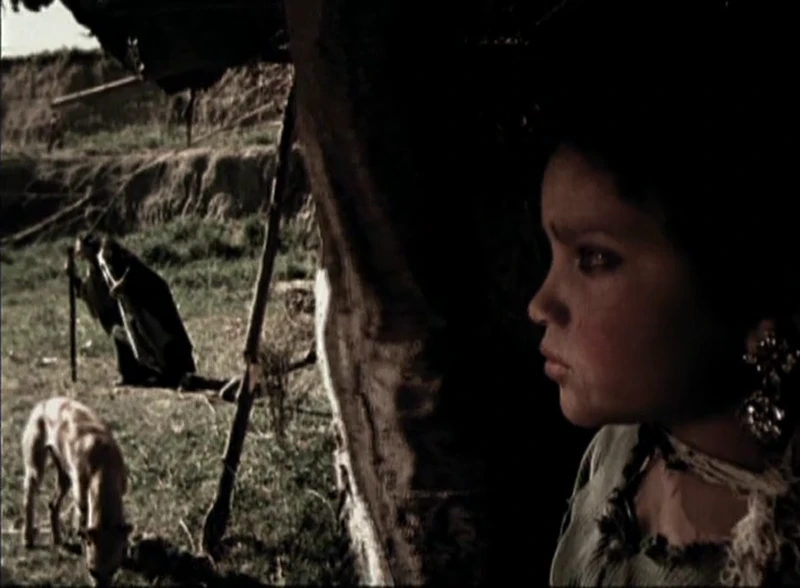
Nazareno asks Griselda if she'll still love him if he turns into a wolf, and she just laughs unnaturally again, before an excessively long kissing scene. One of her friends pets her head while she makes out with Nazareno on the beach. Her dad finds them getting at it, and mutters disappointedly, possibly because public threesomes weren't socially acceptable in 1970s Argentina. She spends the next five minutes or so walking away slowly. If I could summarize the pacing of this film in one word, it would be: "no."
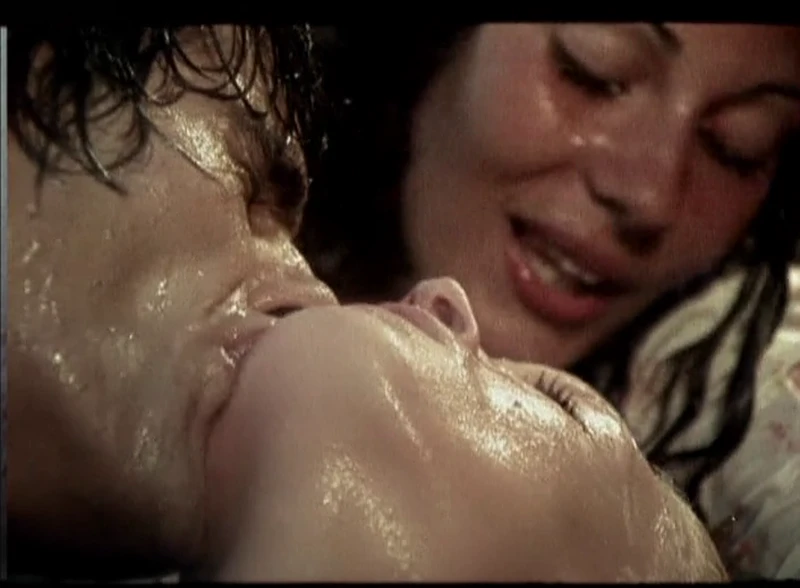
The mystery man appears and says "in the name of the Father, Lucifer," and curses him to be el lobo. Nazareno awakens on the beach, under the full moon, pants… and then it cuts to a cute black German Shepherd-like doggy walking through the underbrush. It's Ñaró! Ñaró, who looks basically nothing like a wolf, spots a shepherd out with his sheep herd in the evening. Much yelling and screaming follows, then Ñaró eats the shepherd. A boy quite literally cries wolf.
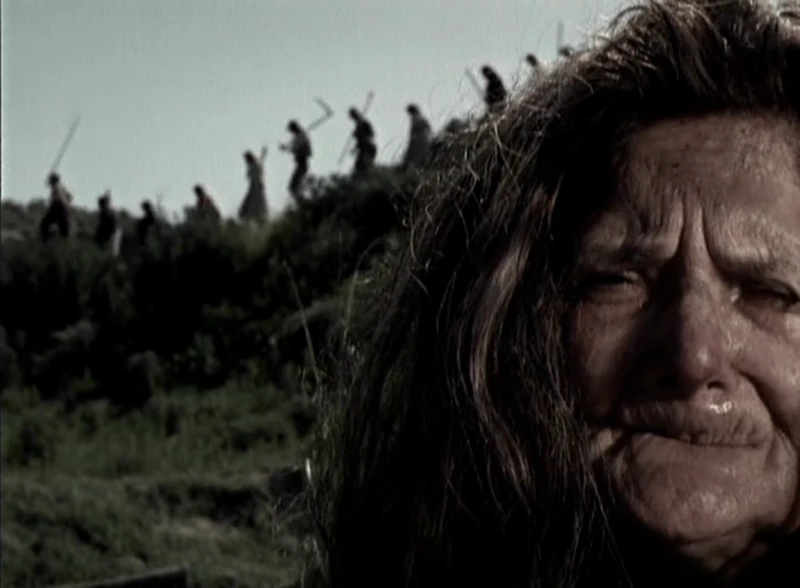
In the morning, the whole town goes on parade shouting the news of the wolf attack, and calling on everyone to gather knives and scythes for a wolf hunt. Inappropriately upbeat ballet music plays over the parade. Griselda's father dramatically screams "murderer!" into the strong wind, and runs around town yelling that Nazareno is el lobo. Griselda cries for a few minutes. After several minutes of that, she stars in her own badly looped running clip.
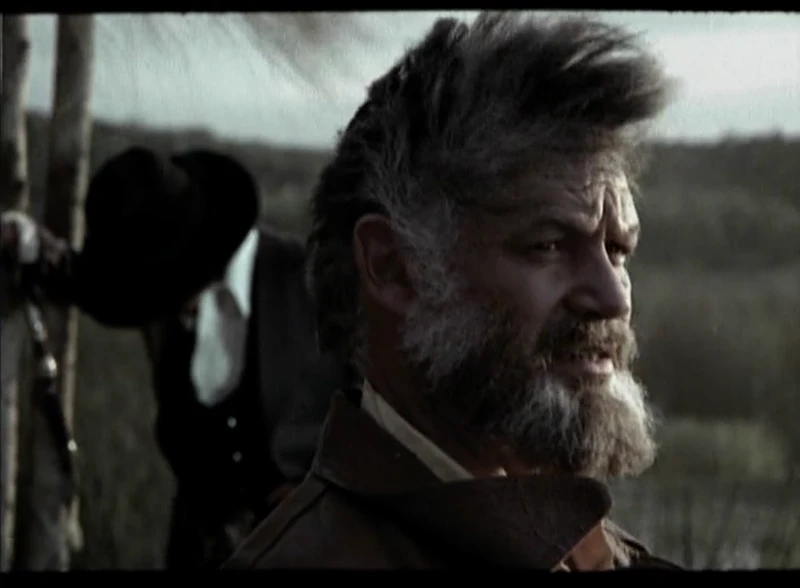
Although the film doesn't look good and is edited quite badly, a not insignificant number of the shots are framed really nicely, like renaissance paintings. The director definitely had a vision, but lacked either the skill or funding to perfect it.
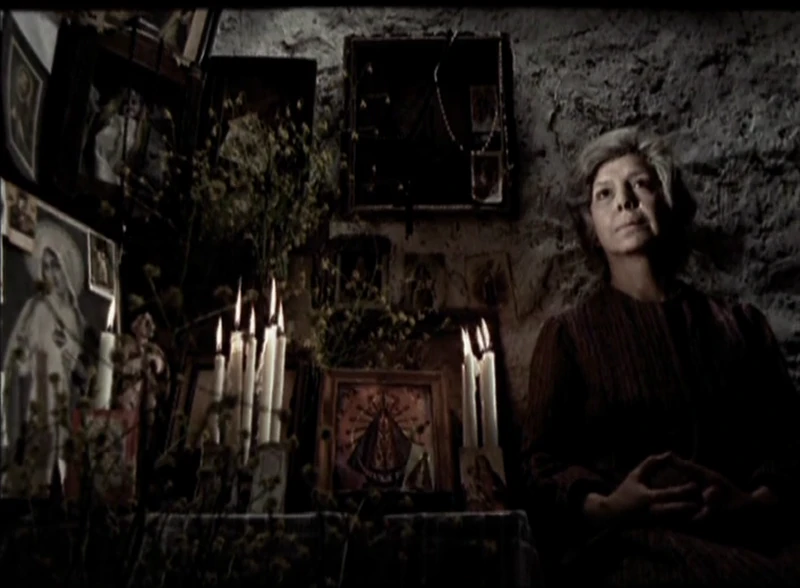
Griselda and Nazareno run off into the dangerously windy, full-moon-lit night. The entire village pursues them. Everybody yells a lot, mostly Griselda obnoxiously shrieking "noooooooooooo!" Griselda doesn't get to say a single full sentence in the whole film. She noooooooooo's right up until he turns into a German Shepherd and eats a townsperson. Then she noooooooo's some more.
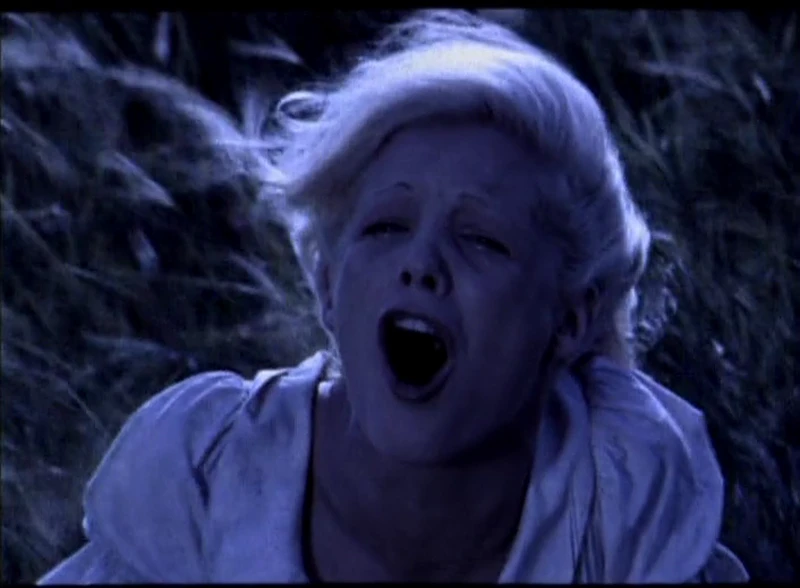
Operatic Russian orchestral music plays as townspeople fire wildly into the brush. Griselda's dad carries her out of the mountains as if she's dying, though I don't think anything actually injured her. She cries, mi hijo, mi hijo.
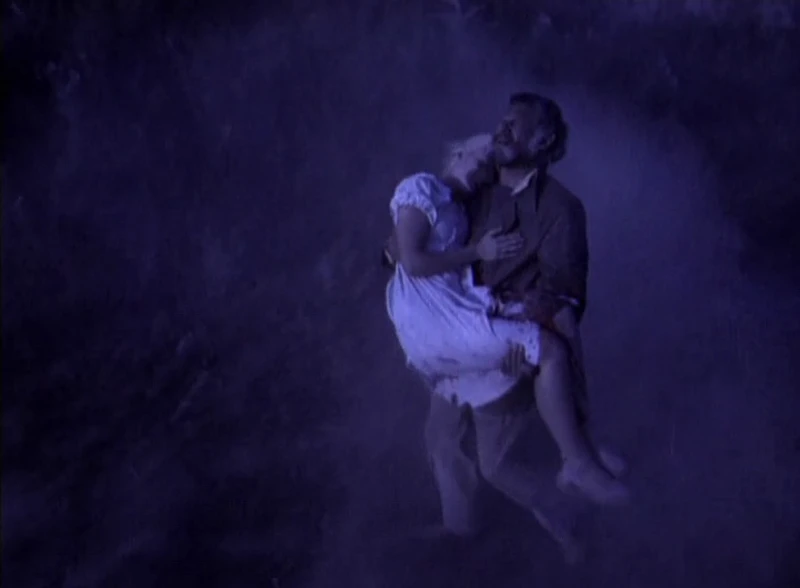
Somewhere out in the windy brush, a black German Shepherd rests. Suddenly it's Nazareno who is resting, blood streaming from his face. He is confronted by a rooster with a snake on its head, which attacks him, causing him to fall down a very deep hole in the mountain. He awakens to an old lady laughing at him. She turns into a goat, a snake, a wolf puppy, and a rooster. She tells him to speak Quechua into a cave, but Nazareno says he doesn't speak Quechua. She babbles some more, and suddenly he's in a giant cave full of chanting people in robes. Bienvenido says satan, wearing a purple suit. Angelic music plays, and Nazareno walks around mesmerized.
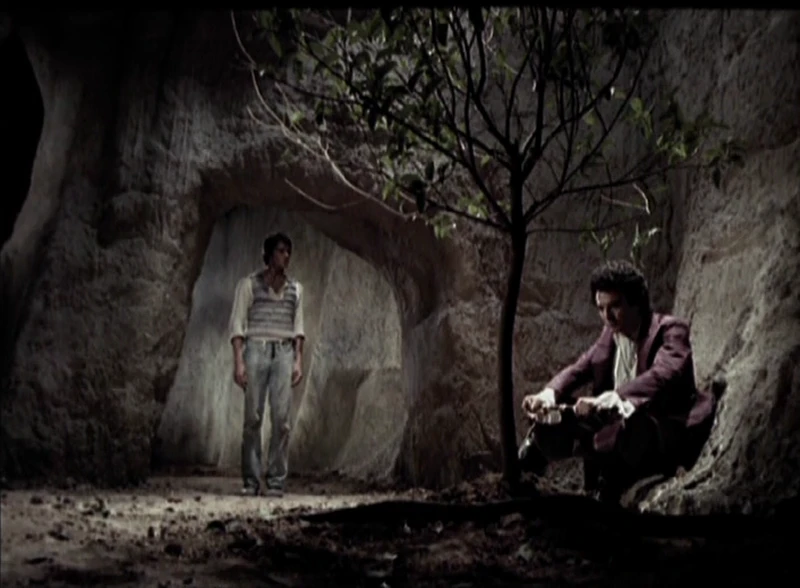
Nazareno doesn't seem upset at all about being in hell. Satan talks about how doesn't have a son and wasn't born himself. He tells Nazareno that he will go to heaven eventually, but he needs a favor for now: "tell God that I'm a little tired, you know?" Satan is just a lonely old angel suffering from depression. Nazareno cries and agrees, and is sent back to a grassy field on earth, but his godmother (almost certainly a witch) warns him that the townsfolk are making silver bullets at this very moment.
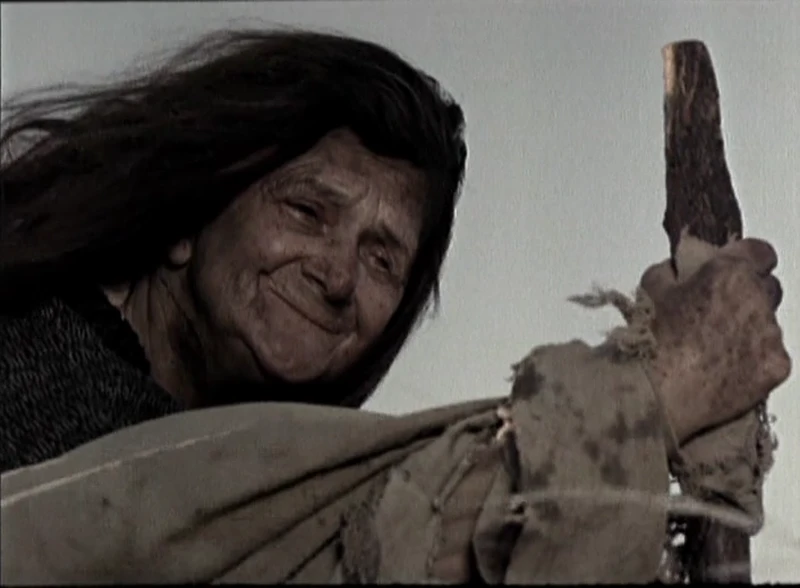
Griselda finds him later in wolf form and they go running through the weeds to the soundtrack of some slow piano music. A wolf hunter fires, striking Griselda, who dies most dramatically. Her father and Nazareno both scream excessively, and then they shoot the hell out of Nazareno too. That choir music from the love montage plays as their two corpses tumble through the woods, and their clothes disappear as they fall to their final resting spot in the moss. The voice of Satan says "Nazareno… please, don't forget about me! Don't forget about me!!"
